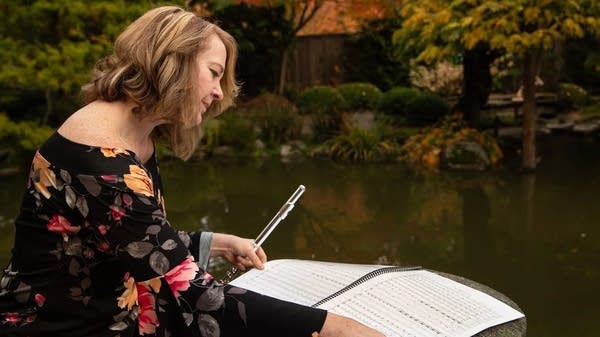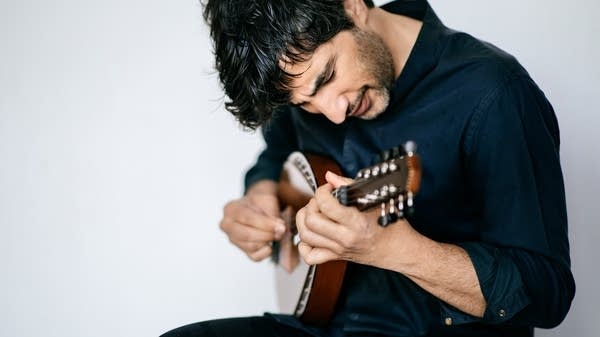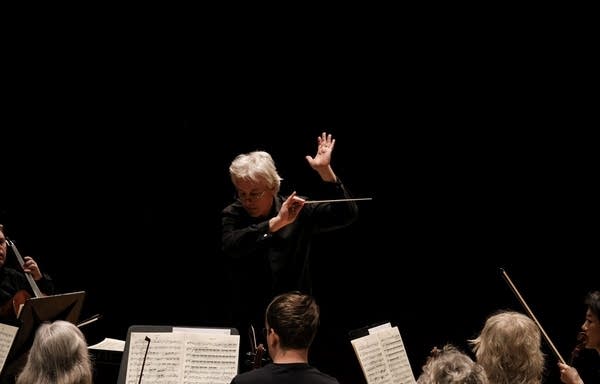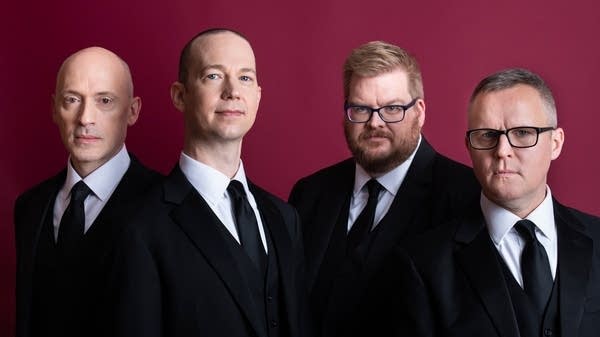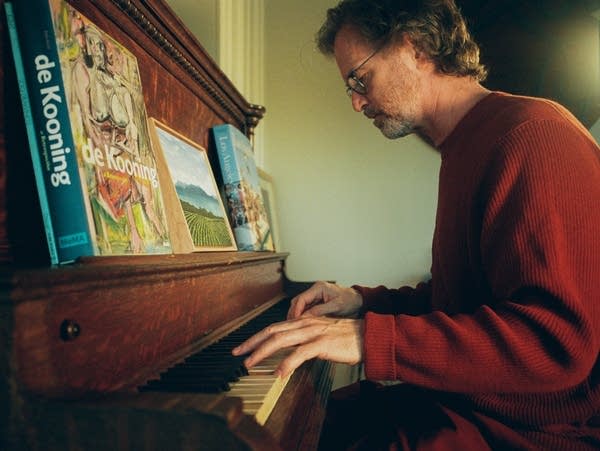Lara Downes – Love at Last (PENTATONE)
Love at Last is a new recording by pianist Lara Downes featuring music of healing and hope. The album contains music that came out of the darkest period of the global pandemic. Downes recalls hearing those years referred to as unprecedented times, but that’s not entirely accurate, she says.
“When we are immersed as classical musicians in a tradition that goes back so many centuries, and we know the stories behind the music, then we're very familiar with the cycles of war and plague, and all of the tragedies that humans endure. So I started thinking about the ways that music could support a feeling of connection across time and place and understanding of history. This continuum, this past, present and future continuum. And then I started amassing music, and it was a really beautiful process.”
What made you decide on the title of Love at Last for this collection of music?
“It comes from a poem by 19th-century writer Shaul Tchernichovsky. He was a Ukrainian poet who later emigrated to Jerusalem. The poem had been set by a singer songwriter named Debbie Friedman in the ‘70s, and it was a song that we used to sing in temple when I was a kid.
“He wrote the poem when he was a young man at the very turn of the century in Odessa. But he was about to witness so many terrible things, the antisemitism that was going to ravage his community in Ukraine, two World Wars. And this poem of his begins with, ‘Laugh at all my dreams, my dearest laugh. And I repeat anew that I still believe in man as I still believe in you. Let the times be dark with hatred. I believe in years beyond, love at last shall bind all people in an everlasting bond.’”
The piece that opens this recording is Dawn, by Czech composer Jaroslav Ježek. It's a work that you performed at the Czech Embassy in Washington, D.C., a few years ago, and most of your audience was in tears. Can you talk about this song and why it has such an impact on those who hear it?
“This song was played on the radio in Prague every day during the Nazi occupation, and it was kind of a secret message of resistance — a reminder to the Czech people that there would be another dawn, a brighter day. And I didn't know that history when I played it in this room full of people who had this visceral connection with that music that was handed down from their parents and grandparents. And the emotion around it just was staggering.”
You created an arrangement of a piece by Margaret Bonds. It's the Credo No. 2, and it's from a larger work. Can you talk a little bit about this piece and how it is still relevant today?
“She wrote her credo inspired by the text from W.E.B. Dubois, a prose poem that he wrote in 1904. In the 1960s, Bonds took that text and wrote a large piece for baritone soloist, chorus and orchestra, also called The Credo, bringing his words to life in the middle of the civil rights movement.
And just thinking about all of the generations who have fought for this American promise and how we continue to do that. We're certainly living in times that are complicated and challenging when it comes to race
All of the pieces on this record. They're all reminding us that tomorrow is a new day, and that means a new chance.”
To hear the rest of my conversation, click on the extended interview above, or download the extended podcast on iTunes or wherever you get your podcasts.
Resources
Lara Downes — Love at Last (Amazon)
Lara Downes — Love at Last (Pentatone)
Lara Downes (Official site)
Love the music?
Show your support by making a gift to YourClassical.
Each day, we’re here for you with thoughtful streams that set the tone for your day – not to mention the stories and programs that inspire you to new discovery and help you explore the music you love.
YourClassical is available for free, because we are listener-supported public media. Take a moment to make your gift today.
Your Donation
About New Classical Tracks®
Host Julie Amacher provides an in-depth exploration of a new classical music release each week.
Subscribe on Apple Podcasts, TuneIn, Radio Public, or RSS.


